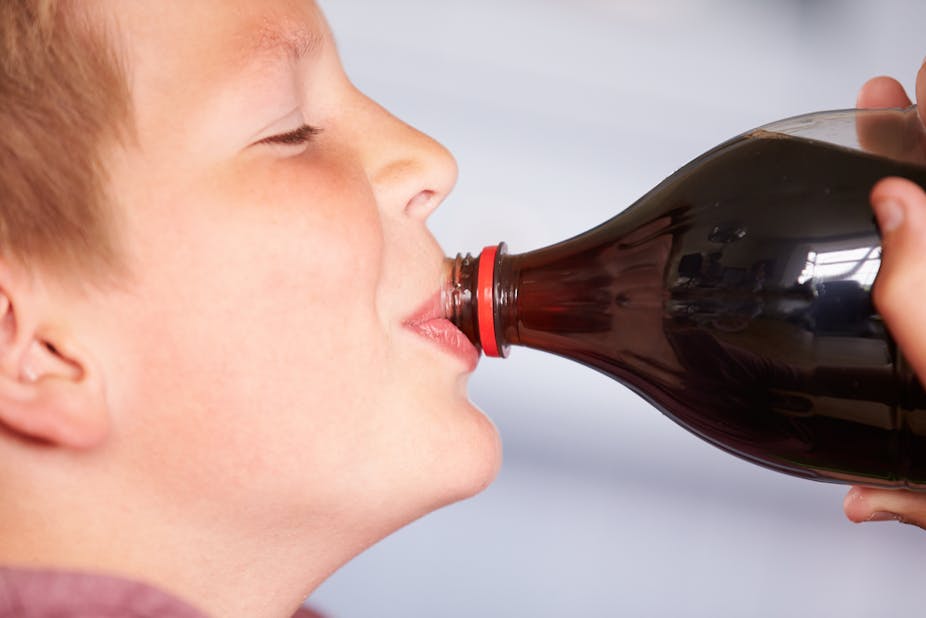George Osborne’s sugar levy on soft drinks seems to acknowledge, at long last, that the food industry should be regulated to help consumers adopt healthier diets. A substantial body of evidence strongly supports a “soda tax”. Regularly consuming sugary drinks is associated with growing rates of obesity, diabetes and tooth decay, particularly among children. Since price influences consumption, the tax aims to help steer consumers towards healthier options.
The soft-drinks industry has loudly objected to the tax on the grounds that it is an intrusion of the “nanny state” on individual choice. But this ignores the fact that consumer choice is shaped to a large extent by the marketing efforts of the soft-drinks manufacturers. In truth this is the health-motivated state taking back some ability to influence consumers from the profit-motivated corporations, finally living up to its responsibility to protect public health and do something about childhood obesity.

Soft-drinks manufacturers also argue that food taxes disproportionately affect poor people, since they spend a larger share of their income on food, particularly unhealthy food. The move will therefore exacerbate inequality, they claim. Yet this is a short-term view of inequality: while poorer consumers may spend proportionately more of their income on unhealthy drinks, they are more likely to be overweight. They may therefore see the greatest health benefits in the longer term.
Complex problem
Public support for the soda tax will be higher if the tax is framed as a health-promotion tool, and if the revenues are specifically allocated to obesity-prevention programmes. We should therefore welcome the chancellor’s announcement that the £520m he expects to raise in year one will be spent on increasing sports funding in primary schools.
Yet the success of this tax will ultimately depend on how effectively it has been designed. Here Osborne still has a lot of thinking to do. His decision to exclude milk-based drinks and pure fruit juices, even though they can be high in sugar, may work against the tax’s health objectives. This is particularly the case if it results in sweetened drinks being substituted for milk-based drinks.
The literature suggests these kinds of interventions are most effective when they target the problem precisely and don’t allow consumers unhealthy alternatives. At present the government’s message also appears confused: is the tax designed to discourage consumers from buying so many soft drinks or encourage the manufacturers to reduce their sugar content – or both? The bottom line is that if the soda tax is going to work, it must incentivise consumers to shift from sugary soft drinks to less sugary ones.

The debate surrounding this soda tax highlights that developing effective obesity-prevention strategies is complex. If the government genuinely wants to tackle the problem, it needs to comprehensively address the multiple aspects of childhood obesity. Sugary drinks are an important part of that, but still only a part. The government’s long-awaited and much delayed strategy on childhood obesity, promised for this summer, may well build on the soda-tax announcement. Certainly the government still needs to do far more than it has proven willing to do so far to reverse obesity trends.

